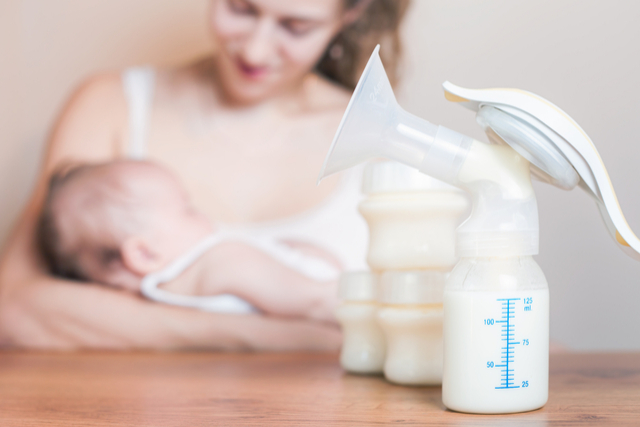How often to breastfeed:frequency and duration
Breastfeeding on demand VS scheduled feeding
Every baby is different. Do not be disappointed if someone tells you that her newborn needs to be breastfed less often than yours. You should breastfeed on demand, as recommended by experts and authorities in the field including the World Health Organization (WHO).
Although it is good to set a routine for bed time and bath time, it is not the case for feeding.
Researches have shown that scheduled feedings are linked with poorer academic outcome in the later years. Researchers tracking more than 10,000 children from infancy have found that babies fed on a schedule at 4 weeks of age had lower cognitive and academic scores in the later years.
Another reason why WHO denounces scheduled feeding as harmful and ineffective is that there are a few growth spurts in the first year in which your baby will put on more weight and height than usual. This means your baby will need more breast milk intake to support the growth spurt.
Common times for growth spurts are during the first few days at home and around 7-10 days, 2-3 weeks, 4-6 weeks, 3 months, 4 months, 6 months and 9 months
Breastfeeding on demand means feeding your baby whenever she is hungry. Of course, babies will not be able to tell you that she is hungry. As a parent, you need to look for hunger cues which include the followings:
- Root for a breast.
- Hand-sucking or hand to mouth movement
- Increased alertness or restlessness
Duration of a breastfeeding session
Newborns differ a lot in their sucking strengths, and this affects how rapidly they can empty a breast. As a result, some babies require a longer feeding duration than others. This is especially true for the lower birth weight babies and the premature babies—both of whom may lack the strength to suck effectively.
As a general guideline, each breastfeeding session should last from 10 minutes to 45 minutes
There is no specific duration your baby should spend on each breast. You will be able to tell that she has had enough breast milk when she removes herself or stops sucking for longer than a few minutes
By allowing your baby to determine the end of the feeding session, she is able to obtain higher fat, creamier breast milk that usually comes near the end of the feeding session. If you remove the baby after a specific amount of time you may hinder his ability to get enough of milk that has high energy content.
Frequency of breastfeeding in the first week
You should practice breastfeeding on demand which means that you may need to nurse your baby
8 to 12 times in a day. Feeding sessions are not equally spaced.
Is my baby getting enough milk in the first week?
(a) Weight gain: It is normal for the newborn to lose about 7% of weight in the first three days. From day 4 onwards, your baby should gain 20 to 35 grams per day.
(b) Wet diaper: at least one in the first day. At least two in the second day. 3 to 6 wet diapers in day 3 to day 7.
(c) Soiled diaper: at least one in the first two days. At least 3 diapers will be needed from day 3 to day 7.
Frequency of breastfeeding in the second week to 2 months
You should practice breastfeeding on demand which means that you may need to nurse your baby
8 to 12 times in a day. Feeding is not spaced evenly
Is my baby getting enough milk?
(a) Weight gain: your baby should gain about 170g per week.
(b) Wet diaper: at least 6 wet diapers in a day
(c) Soiled diaper: about 3 dirty diapers per day. For some babies, they stool much less often like once in every 7 days.
Frequency of breastfeeding in 2 months to 6 months
You should practice breastfeeding on demand which means that you may need to nurse your baby
6 or more times in a day. Feeding is not spaced evenly
Is baby getting enough milk?
(a) Weight gain: your baby should gain about 120g to 160g per week.
(b) Wet diaper: about 6 wet diaper per day.
(c) Soiled diaper: about 3 dirty diapers in a day. For some babies, they pass stool much less often like once in every 7 days.
Frequency of breastfeeding in 6 months to 12 months
You should practice breastfeeding on demand which means that you may need to nurse your baby
3 to 5 times in a day. Feeding is not spaced evenly
Is the baby getting enough milk?
(a) Weight gain: your baby should gain about 60g to 110g per week.
(b) Wet diaper: 5 to 6 wet diapers a day
(c) Soiled diaper: about 1 dirty diaper per day. For some babies, they pass stool much less often like once in every 7 days and it is still normal.
Summary of Breastfeeding Frequency and Duration
As said before, every baby is different, the table below is just a rough guide for mothers who are nursing the babies.
|
Age |
Breastfeeding frequency |
Weight gain |
Wet diaper |
Soiled diaper |
|
First week |
8 to 12 times |
Lose 7% of weight in first 3 days and gain 20 to 35 grams every day thereafter. |
At least in first day, two in second day and 3 to 6 from day 3 to day 7. |
At least 1 in first two days and at least 3 from day 3 to day 7. |
|
Second week to 2 months |
8 to 12 times |
170 grams per week |
About 6 wet diapers a day |
3 to 4 dirty diapers. However, some babies may pass stool much less often like once in every 7 days. |
|
2 to 6 months |
6 or more times |
120 to 160 grams per week |
About 6 wet diapers a day |
About 3 dirty diapers a day. However, some babies may pass stool much less often like once in every 7 days. |
|
6 to 12 months |
3 to 5 times |
60 to 110 grams per week |
5 to 6 wet diapers a day |
About 1 dirty diaper per day. However, some babies may pass stool much less often like once in every 7 days. |
It takes a village to raise a child !
Join our WhatsApp Parenting Chat Groups By Area in Singapore.









